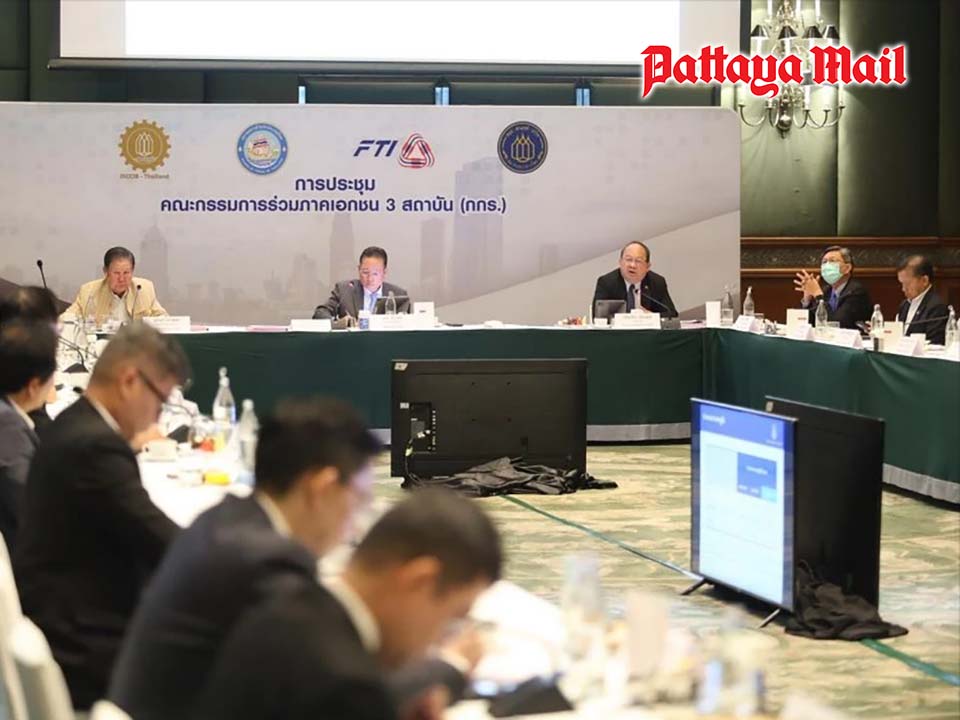Strong baht undermines Thailand’s tourism and economy as competitors gain — yet officials chase weak growth numbers
The strong baht is squeezing Thailand’s exporters and tourism, while competitors steal market share. Yet official focus remains stuck on weak growth targets.
PATTAYA, Thailand – Thailand’s economy is facing a growing crisis as the Thai baht’s rapid strengthening is destroying more than just tourism — it’s squeezing exporters and investors alike, while rival countries are seizing market share. Meanwhile, official focus remains trapped on chasing modest GDP growth targets that reflect slowing exports and private investment.
The Joint Standing Committee on Commerce, Industry and Banking sharply cut Thailand’s GDP growth forecast for 2025 to just 1.5–2.0%, down from an earlier projection of 2.0–2.2%. This downgrade reflects a slowdown in exports and private sector investment during the second half of the year, with economic expansion expected to fall below 1% for the latter six months. The committee also raised concerns over ongoing unresolved trade negotiations between Thailand and the U.S., along with an influx of low-cost Chinese imports and export re-export practices that undermine domestic manufacturing and employment.
Payong Srivanich, chairman of the Thai Bankers’ Association emphasized that despite a near 3% GDP growth in the first half of the year — partly driven by temporary public investments — the economy is losing steam. The decline in Chinese tourists and muted private consumption have further dampened prospects. Exports, though registering above 15% growth in early 2025 due to inventory liquidation, are not translating into broader industrial gains, with manufacturing growth barely reaching 0.6%.
The root cause of many challenges lies in the baht’s strength, which currently hovers around 32.5–32.7 THB/USD, appreciating faster than competitor countries such as Vietnam and Singapore. This appreciation makes Thai goods more expensive and less competitive on the global stage, especially in export-dependent sectors. The situation is worsened by rising sectoral tariffs from the U.S. and unclear trade deal timelines, adding uncertainty for exporters.
Thailand’s economy slows as the baht strengthens — hurting exports, tourism, and investment. Experts urge urgent action amid uncertain trade talks and rising foreign imports.
Tourism, a critical pillar of Thailand’s economy, is also suffering. The strong baht means foreign visitors find Thailand more expensive than regional alternatives. While efforts to attract long-haul tourists have grown by 17% this year, they are insufficient to offset the steep decline in Chinese arrivals, the country’s largest tourist source pre-pandemic.
Yet, despite these warnings, Thailand’s policymakers appear to be focusing on weak GDP numbers and short-term stimulus programs rather than addressing structural issues like currency management, trade enforcement, and improving investor confidence.
The committee urges the government to take comprehensive measures: controlling currency volatility, rigorously inspecting imports to prevent illegal trade practices, and supporting SMEs facing financial liquidity pressures. They also recommend reducing electricity deposit requirements for businesses to ease operational burdens.
The warning is clear: without a strategic response, Thailand risks losing ground to neighbors who are capitalizing on their more competitive currencies and trade environments. Meanwhile, Thailand continues to chase modest growth targets, ignoring the underlying damage being inflicted by the strong baht and geopolitical uncertainties.



